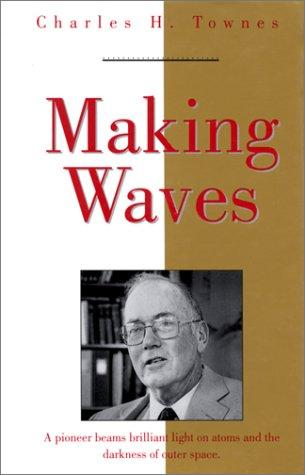

Most ebook files are in PDF format, so you can easily read them using various software such as Foxit Reader or directly on the Google Chrome browser.
Some ebook files are released by publishers in other formats such as .awz, .mobi, .epub, .fb2, etc. You may need to install specific software to read these formats on mobile/PC, such as Calibre.
Please read the tutorial at this link: https://ebookbell.com/faq
We offer FREE conversion to the popular formats you request; however, this may take some time. Therefore, right after payment, please email us, and we will try to provide the service as quickly as possible.
For some exceptional file formats or broken links (if any), please refrain from opening any disputes. Instead, email us first, and we will try to assist within a maximum of 6 hours.
EbookBell Team

0.0
0 reviews"A compelling view of the thoughts life and work of one of this century’s great scientists.
These essays combine Townes’ wide ranging curiosity with his experience in industry, academia and government.Here is science, and its implications, as seen by a highly productive and relentlessly honest insider.”—Arno Penzias,Nobel Laureate,AT&T Bell Laboratories
A scientist whose inventions have permanently altered the land- Born in Greenville, South Carolina, Dr. Townes graduated from Fur- Among his many honors, Dr. Townes received the National Medal of More recently Dr. Townes has developed a pair of moveable telescopes
scape of modem technology and daily life, Charles H. Townes
won the 1964 Nobel Prize in physics for two major breakthroughs. He conceived both the laser and the maser; he has the original
patent on the maser, and with Arthur Schawlow also on the laser. He has
also made major contributions to molecular physics and the advancement
of astrophysics, among them his discovery of stable molecules in galactic
clouds.
man University, earned his master’s degree in physics from Duke University, and his Ph.D. at the California Institute of Technology. He worked initially at the Bell Telephone Laboratories, then taught at Columbia
University, spent some time in Washington, returned to academic work at
the Massachusetts Institute of Technology, and later became University
Professor at the University of California. During the latter part of his career he has been an active governmental advisor, including service as
chairman of the technical advisory committee for the Apollo Program.
Science in 1982. He is also a recipient of the Niels Bohr International
Gold Medal and is a member of the National Academy of Sciences, the
Royal Society of London, the National Inventors Hall of Fame, and the
Engineering and Science Hall of Fame.
for obtaining very high angular resolution of astronomical objects. He is
presently University Professor Emeritus at the University of California.